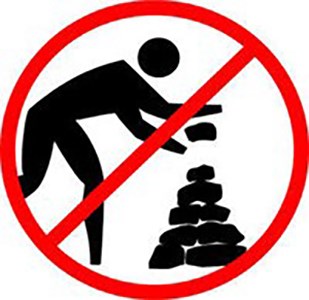
Descend through a lush rainforest to the solidified lava lake on the floor of Kīlauea Iki crater. Peer into the vent that erupted to a height of 1900 feet during the eruption of 1959 located below Puʻupua‘i cinder cone.
Download the Kīlauea Iki Trail Guide (pdf 921KB) 
Leave rocks in their rightful place. Park staff may use cairns (stacked rocks) to mark some trails and keep visitors safe. Please do not create new ones. The stacking of rocks can be culturally offensive, disorienting to hikers, and potentially against the law. |
Last updated: December 24, 2025
